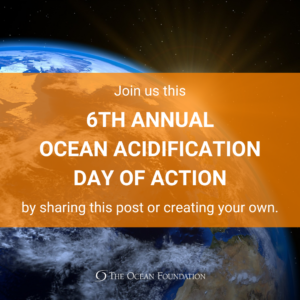6th Annual
Ocean Acidification
Day of Action
Press & Social Media Toolkit
Help us spread the word about the importance of taking action to address ocean acidification and its effects on our blue planet. The below toolkit features key messages, social media post examples, and media resources for the 6th Annual Ocean Acidification Day of Action in 2024.
Jump to Sections
- Social Media Strapline
- Hashtags / Accounts
- Featured Websites
- Social Graphics
- Social Schedule
- Press / Contacts
Social Media Strapline
The Ocean Foundation and its partners around the world are taking collective action to address ocean acidification. We are committed to making sure that every country and community – not just those with the most resources – has the ability to respond and adapt
to this unprecedented change in ocean chemistry.
Hashtags/Accounts
#OADayOfAction
#OceanAcidification
#SDG14
The Ocean Foundation
Featured Websites
https://ocean-acidification.org/
https://oceanfdn.org/initiatives/ocean-acidification/
Social Graphics
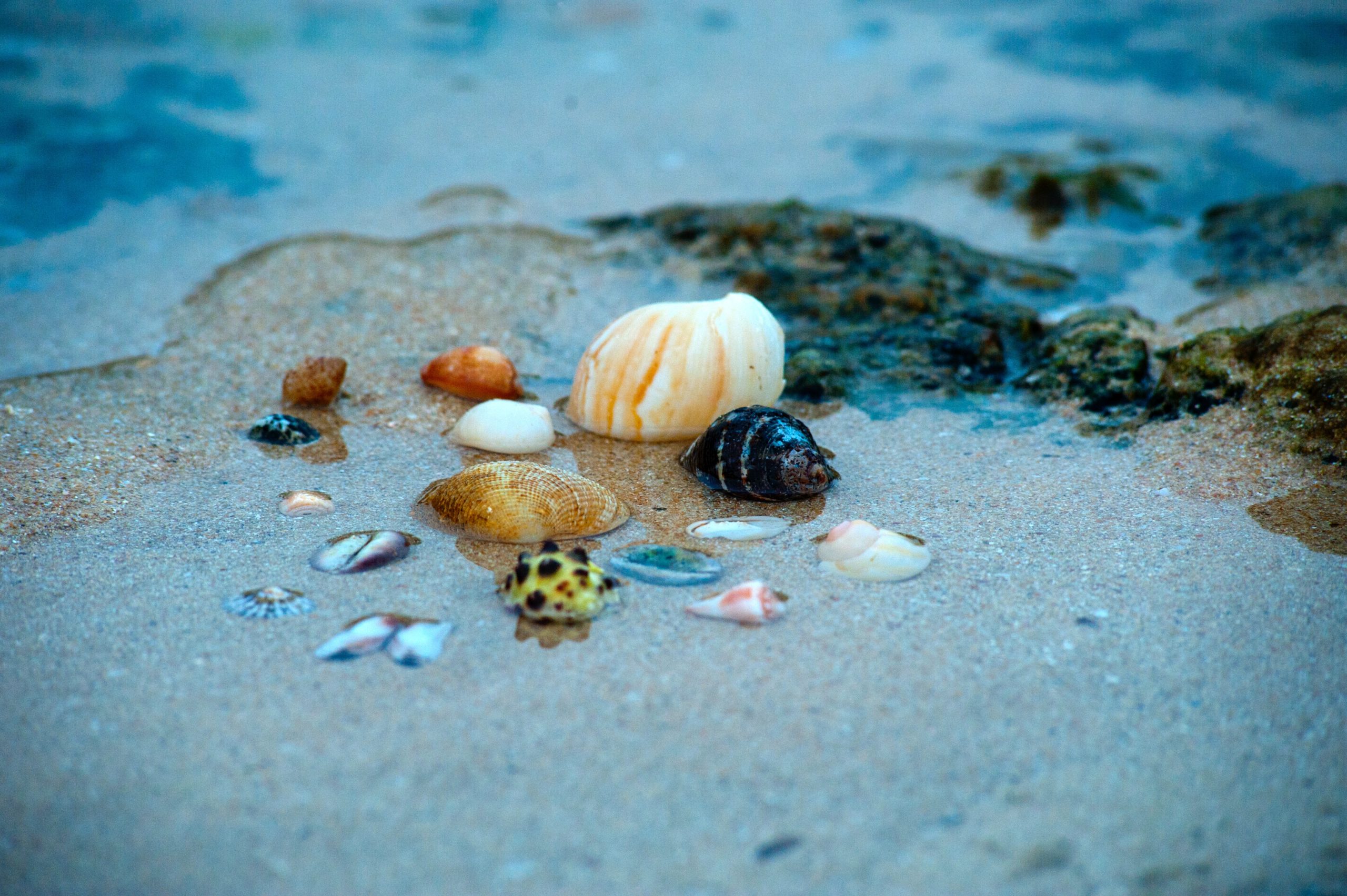
Social Schedule
Please share on the week of January 1-7, 2024, and throughout the day of January 8, 2024
X Posts:
Images included in Google Drive “Graphics” folder.
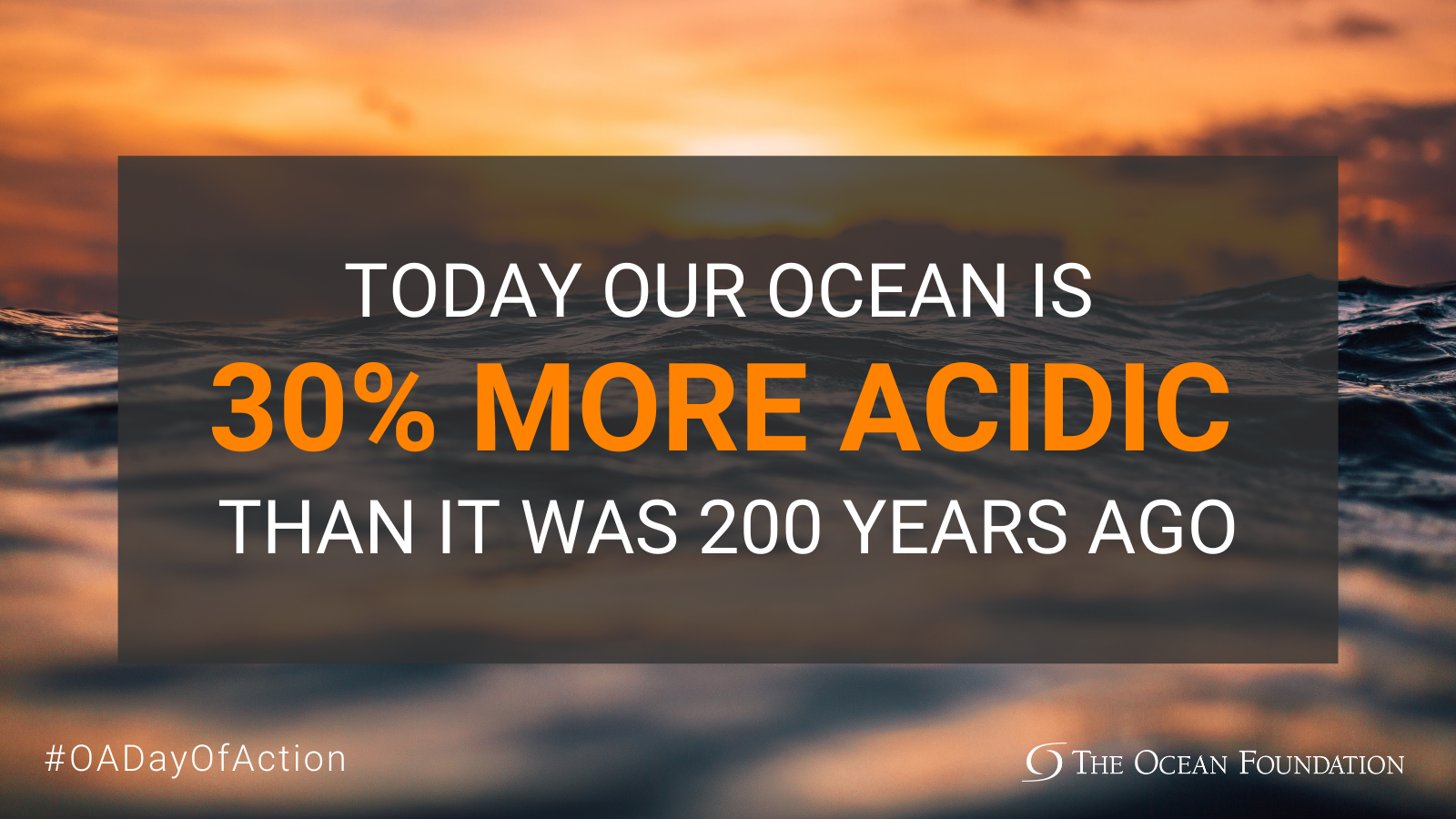
What is Ocean Acidification? (post during Jan 1-7)
CO2 dissolves into the ocean, altering its chemical makeup faster than ever in history. As a result, seawater today is 30% more acidic than it was 200 years ago. On #OADayofAction, join us & @oceanfdn, and learn more about the issue of #OceanAcidification. bit.ly/342Kewh
Food Security (post during Jan 1-7)
#OceanAcidification makes it difficult for shellfish and coral to build their shells and skeletons, causing challenges for shellfish growers. With @oceanfdn, we help farmers adapt and gain resilience. #OADayofAction #OceanScience #ClimateSolutions bit.ly/342Kewh
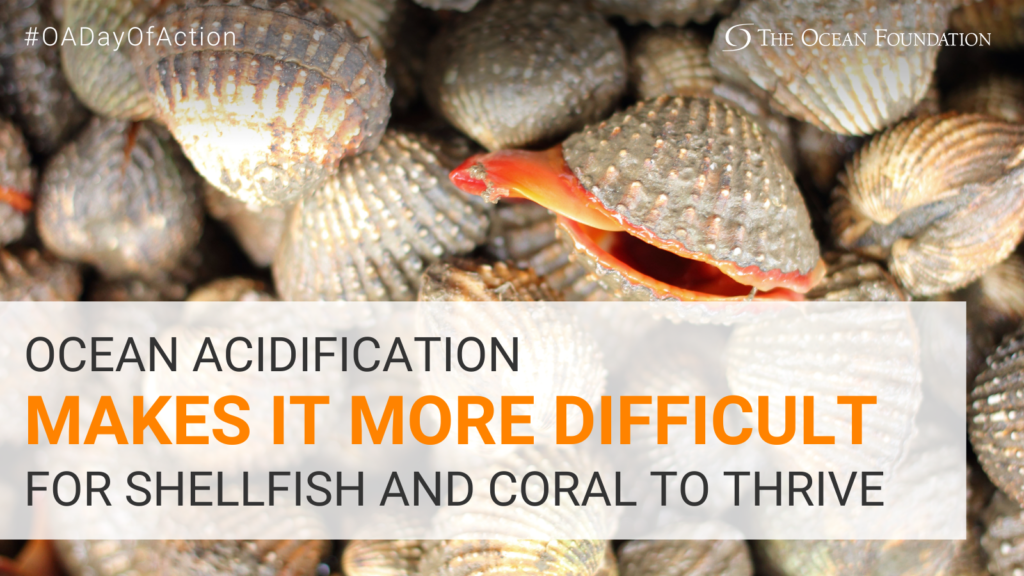
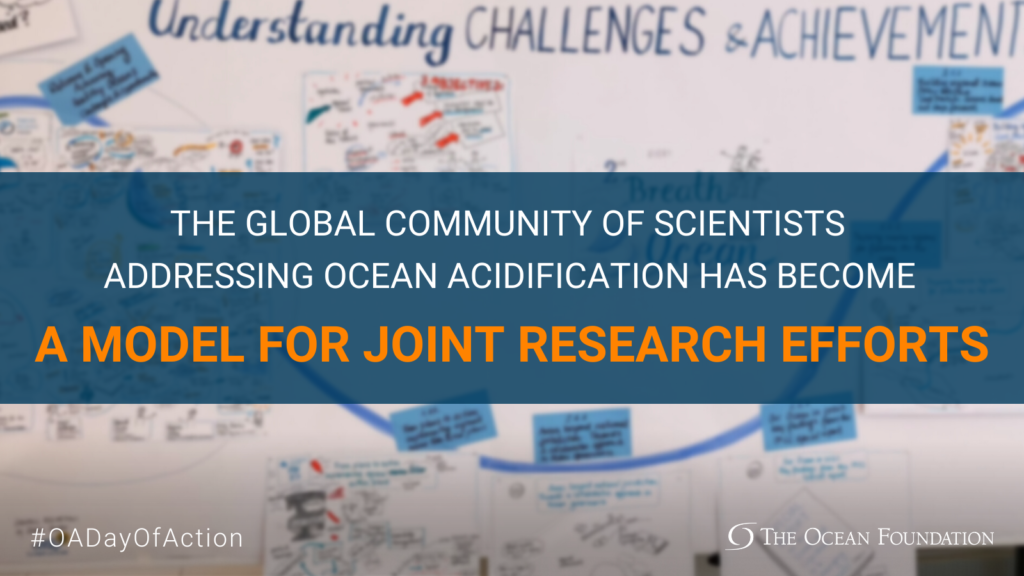
Capacity Building and OA Monitoring (post during Jan 1-7)
We belong to a global community of 500+ scientists and stakeholders dedicated to understanding #OceanAcidification. @oceanfdn has helped over 35 countries start monitoring it! Together, we gain resilience. #OADayofAction #SDG14 bit.ly/342Kewh
Policy (post during Jan 1-7)
We can’t tackle #OceanAcidification without effective #policy. @oceanfdn’s Guidebook for Policymakers provides examples of existing #legislation and offers tools on how to draft new policies to meet local needs. Check it out #OADayofAction #SDG14 https://bit.ly/3gBcdIA
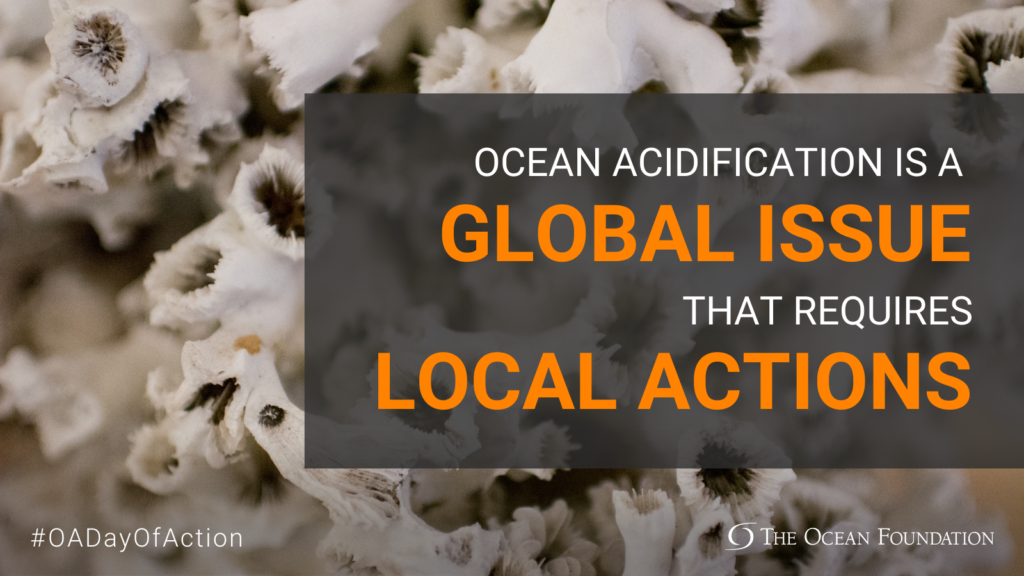
OA Day of Action! (Post on January 8!)
The current pH level of the ocean is 8.1. Hence today, on 8 January, we hold our 6th #OADayofAction. @oceanfdn and our global network remain committed as ever to fighting #OceanAcidification and finding solutions to this crisis. https://ocean-acidification.org/
Facebook/LinkedIn Posts:
Where you see [The Ocean Foundation], please tag us/use our handle. You can also post all graphics as a multi-photo post. Please feel free to add emojis where appropriate.
What is Ocean Acidification? (post during Jan 1-7)
The climate and ocean are changing. Carbon dioxide continues to enter our atmosphere because of our collective burning of fossil fuels, and when carbon dioxide dissolves into seawater, drastic changes to ocean chemistry – called ocean acidification – occur. This ongoing process stresses out some marine animals, and could disrupt entire ecosystems as it progresses.
We are proud to join @The Ocean Foundation in its global effort to help communities respond to the changing chemistry of the ocean. The 8th of January – or 8.1 – reminds us of the current pH of our ocean, and of the importance of preventing the pH from dropping further. On this 6th #OADayOfAction, we call on others to join our international community. Tune in to watch a video showcasing how our community works together to address ocean acidification.
Read more about this initiative at oceanfdn.org/initiatives/ocean-acidification/
Suggested hashtags: #OceanAcidification #ClimateChange #ClimateSolutions #OceanScience #Ocean #OceanConservation #MarineConservation #MarineScience #SDG14 #ClimateResilience #ScienceMatters
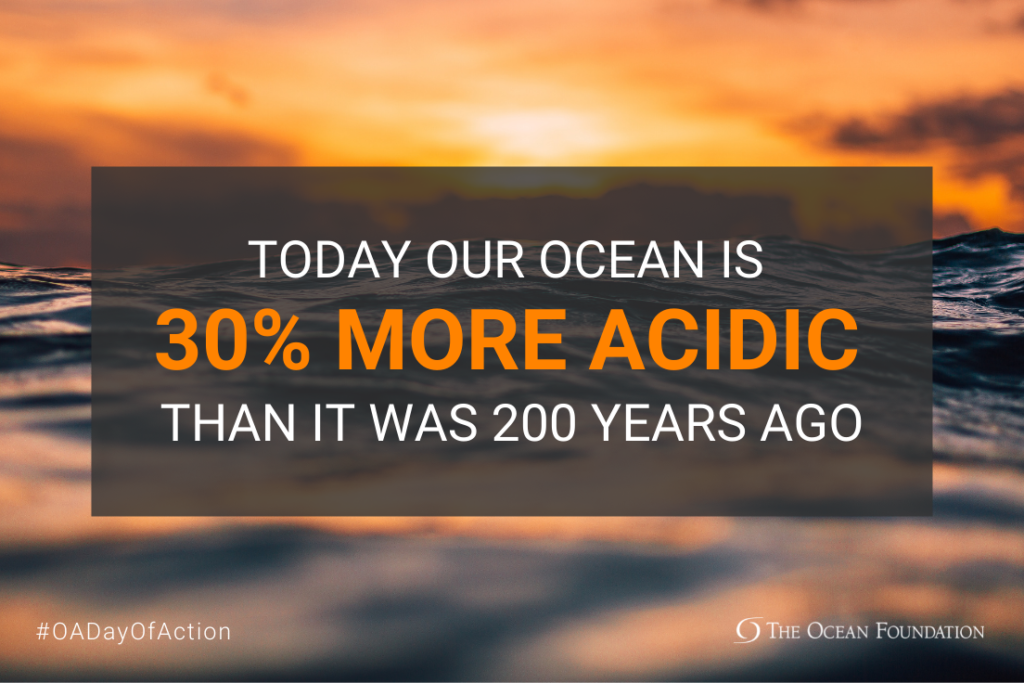
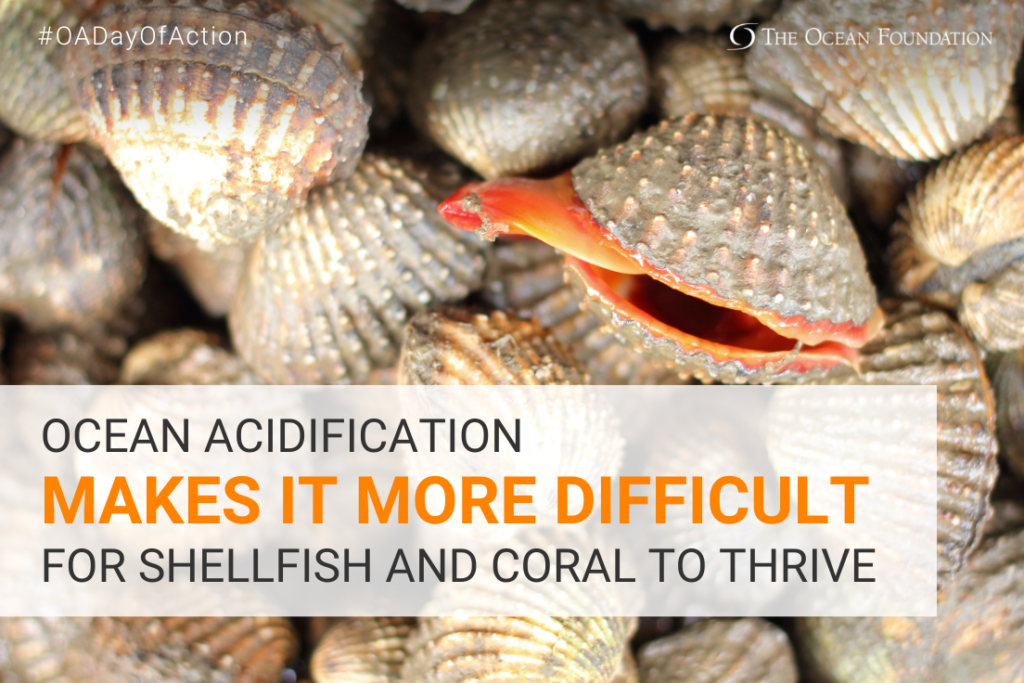
Food Security (post during Jan 1-7)
Since the Industrial Revolution, the ocean has become 30% more acidic, and it continues to acidify at an unprecedented rate. Shellfish farmers have been one of many groups to sound alarm bells, as #OceanAcidification inhibits the ability of shellfish to make their shells – causing mortality.
We are part of @The Ocean Foundation’s global effort to help communities, scientists, and shellfish growers monitor and respond to changing ocean conditions. Join us on the 8th of January for the 6th Annual OA Day of Action. Tune in to watch a video showcasing how our community works together to address ocean acidification.
Read more about this initiative at oceanfdn.org/initiatives/ocean-acidification/
Suggested hashtags: #OceanAcidification #Shellfish #Seafood #Oysters #Mussels #Farmers #ClimateChange #ClimateSolutions #OceanScience #Ocean #OceanConservation #MarineConservation #MarineScience #SDG14 #ClimateResilience
Capacity Building and OA Monitoring (post during Jan 1-7)
Rising CO2 emissions are changing the ocean’s chemistry at an unprecedented rate. Right now, many communities and countries do not have the ability to understand and respond to this change in ocean chemistry.
We are proud to work with @The Ocean Foundation to increase global capacity to monitor and respond to ocean acidification. Our network of more than 500 scientists, policymakers, and seafood stakeholders from more than 35 countries works together to advance our collective understanding.
Tune in on the 6th Annual OA Day of Action – the 8th of January – to watch a video showcasing how our community works together to address ocean acidification.
Read more about this initiative at oceanfdn.org/initiatives/ocean-acidification/
More suggested hashtags: #OceanAcidification #ClimateChange #ClimateSolutions #OceanScience #Ocean #OceanConservation #MarineConservation #MarineScience #SDG14 #ClimateResilience
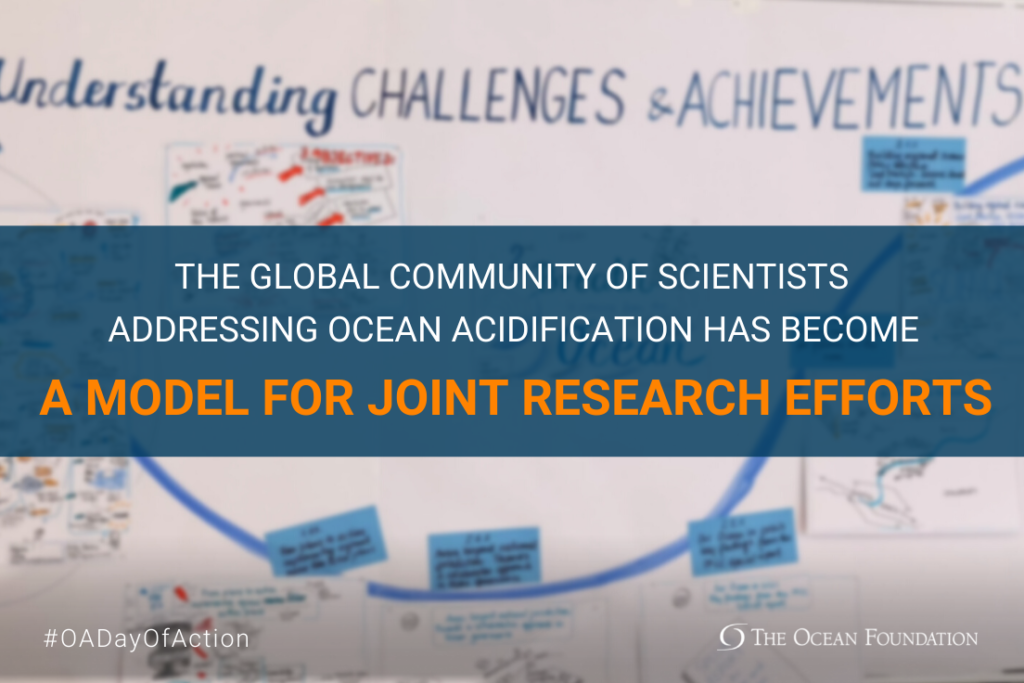
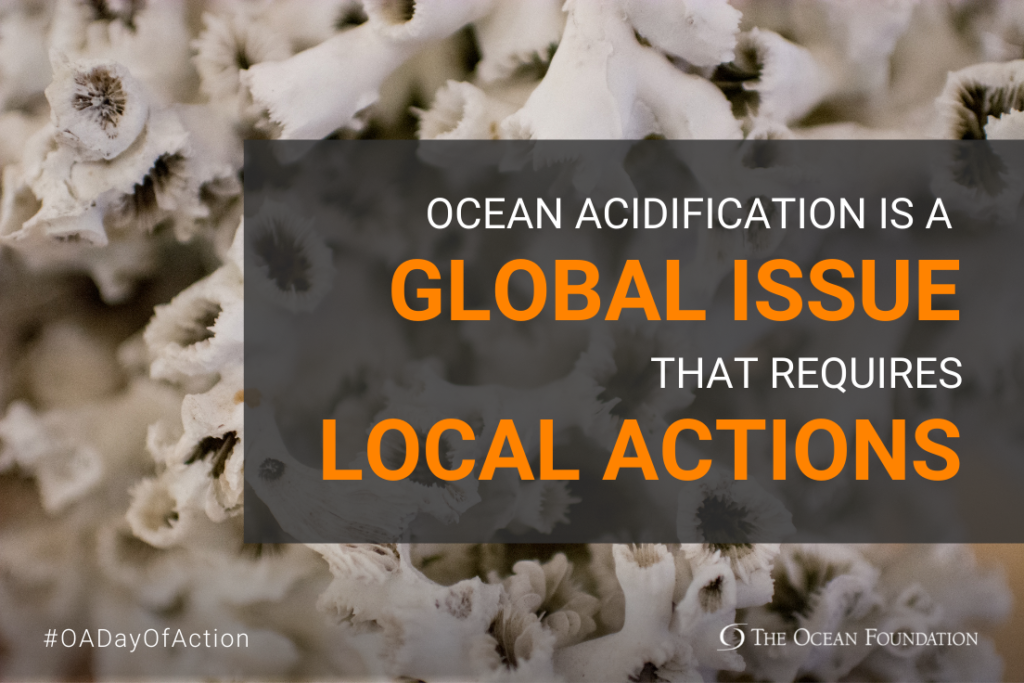
Policy (post during Jan 1-7)
Building resilience to ocean acidification and mitigating it from the source requires action at local to global scales. Effective policy is critical to ensuring we have the right tools to understand and respond to ocean acidification.
We join @The Ocean Foundation to work towards its goal of ensuring every country has a national ocean acidification monitoring and mitigation strategy driven by local experts to address local needs. Join us too, and learn about existing policy frameworks by reading [The Ocean Foundation]’s guidebook for policymakers. Request it here: oceanfdn.org/oa-guidebook/
More suggested hashtags: #OceanAcidification #ClimateChange #ClimateSolutions #OceanScience #Ocean #OceanConservation #MarineConservation #MarineScience #SDG14 #ClimateResilience #ClimatePolicy #OceanPolicy
OA Day of Action! (Post on January 8)
Today, on the 8th of January – or 8.1, the current pH of the ocean – we celebrate the 6th Annual Ocean Acidification Day of Action. We are grateful to be part of the international ocean acidification community that is working together to address the ocean’s rapidly changing chemistry. We are proud to partner with @The Ocean Foundation to make sure that every country and community – not just those with the most resources – has the ability to respond and adapt to this unprecedented change in ocean chemistry
Tune in to watch a video showcasing how our community works together to address ocean acidification
Read more about OA Day of Action and what you can do: https://ocean-acidification.org/
More suggested hashtags: #OceanAcidification #ShellFish #Seafood #Oysters #Mussels #Farmers #ClimateChange #ClimateSolutions #OceanScience #Ocean #OceanConservation #MarineConservation #MarineScience #SDG14 #ClimateResilienceInstagram posts
Instagram Post and Stories:
Please share the graphics as a carousel post in the same order as below. Feel free to add emojis where appropriate.
The climate and ocean are changing. Carbon dioxide continues to enter our atmosphere because of our collective burning of fossil fuels, and when carbon dioxide dissolves into seawater, drastic changes to ocean chemistry – called ocean acidification – occur. This ongoing process stresses out some marine animals and could disrupt entire ecosystems as it progresses.
Ocean acidification can create a domino effect, disrupting whole ecosystems that have complex interactions between algae and plankton — the building blocks of food webs – and culturally, economically, and ecologically important animals like fish, corals, and sea urchins.
Responding to such a complex and rapid change requires coordinated efforts between science and policy at local to global scales. In order to ensure that all countries and communities can adapt – not just those with the most resources – we need to create low-cost and accessible tools for monitoring and adaptation.
We, therefore, are proud to partner with @TheOceanFoundation to celebrate the 6th Annual Ocean Acidification Day of Action. This event is held on the 8th of January, or 8.1, the current pH of the ocean. It offers us an opportunity to reflect on the accomplishments of the international ocean acidification community and set our goals for the year to come.
More suggested hashtags: #OceanAcidification #Shellfish #ClimateChange #ClimateSolutions #OceanScience #Ocean #OceanConservation #MarineConservation #MarineScience #SDG14 #ClimateResilience
Create your own post
We invite you to share your own story this OA Day of Action. Please feel free to use the templates we have created or start from scratch. Here are some prompts to help you:
- How are you part of the OA community? What do you work on?
- Why do you think OA is an important issue to address?
- What do you hope your country or region will do to address OA?
- What does the OA community mean to you?
- What do you think the largest challenges and most pressing issues are that the OA community faces today?
- Where were you when you first learned about OA/how did you learn about it?
- Share how you see the OA community supporting or integrating into other key ocean and climate issues, such as the UNFCC COP, the Sustainable Development Goals, or other research at your institution.
- What has inspired you the most as the OA community has grown over the years?
- What are you and your team most proud of having worked on?
Press/Contacts
Ocean Science Equity Initiative
Learn more about how we support increased access to ocean science
Click here
PRESS CONTACT
Kate Killerlain Morrison
External Relations Director
[email protected]
202-318-3178
Social MEDIA Contact
Eva Lukonits
Social Media Manager
[email protected]





